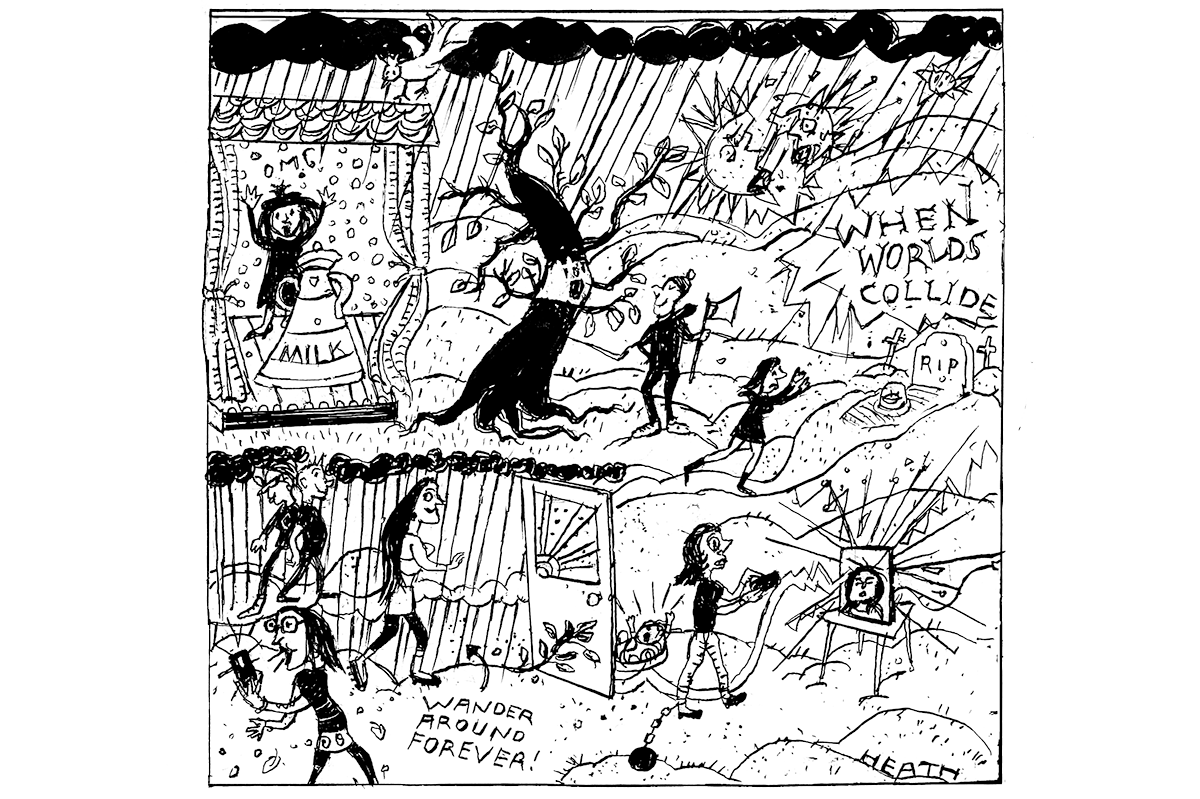Just now, I wrote an email and I couldn’t for the life of me think how to sign it off. ‘Kind regards’, the default setting for most messages, felt a bit too formal, given I am on friendly terms with the recipient; he’s older than me and a priest. ‘Yours ever’ seems forward. ‘Best wishes’ is fine for strangers but may be stilted for someone you know quite well. ‘M’, my most frequent sign-off, would look downright rude. An ‘X’ was out of the question. So plain ‘Melanie’ it was.
But I was left wondering which of the range of options I should have gone for, each suggestive of a slight difference on the register from intimacy to formality. Get it wrong in one direction and you look standoffish; get it wrong in the other and you look like you’re taking liberties.
Emails and texts are informal in nature and that has made written communications more fraught. I dimly recall from Barbara Cartland’s invaluable Book of Etiquette that letters were governed by fairly simple rules: ‘Yours ever’ for intimates, ‘Yours faithfully’ for a Dear Sir letter, ‘Yours truly’ for a shop. And I suppose it was ‘Yours sincerely’ for every other formal letter.
Trouble is, emails seem easy-going, but we’re using them for lots of work messages too. And the rules are fluid. I consulted one former cabinet minister who said he used to sign off messages to other Members of Parliament with ‘Yours ever’; but the other day he wrote to a former colleague and found that it sounded wrong, so it was ‘Yours’ instead. That’s how things change — you just feel your way.
So, I’ve gone through some of the possibilities for concluding an email; yours may of course be different:
1. M
Just an initial. That’s my favorite. It’s good if you’re in a hurry and it’s not rude. It suggests you know the other party quite well. But it only does for communications such as an email where your full name is apparent elsewhere. It drives people nuts if you do it in a Christmas card.
2. Kind regards
This is my default conclusion to a message if it’s in any way formal.
3. M X
Or M xx. Or just XX. Kisses are funny. They’re for friends, obviously. But sometimes I use them to soften a message that might seem a bit terse otherwise. A small single one signals, ‘I come in peace, friend’. Lots of kisses are for intimates of your own age or younger but they don’t signify anything romantic. The trouble with kisses arises when your boss is also a friend. So in a social context you might finish off with M x, but in a work email X would be overstepping the mark, so it’s just M.
4. Best wishes
It’s neutral. Except I find with some old people, they think it’s downright odd to wish people the best. ‘All the best’ is a bit more relaxed; ‘best’ suggests a willingness to be polite, but it’s a bit terse. ‘All best’ ditto. ‘Kindest’ is OK.
5. Regards, M
That’s fine for people you don’t know well but it also suggests you’re keeping the other party at arm’s length. Which may be what you had in mind. ‘Kind regards’ is better.
6. Love, M
Acceptable if you are addressing a friend. It’s easy familiarity. But obviously not one for people you hardly know. ‘Lots of love’ is a more exuberant version.
7. Your fond friend, M
This is what one of the nuns at school told us was the correct idea with friends. Hmm. Not for emails.
8. Radiantly yours
This is the formula used by the supremely self-possessed sociologist Peter York. But I never feel quite radiant enough to use it.
9. Cheers
Nope.
I wouldn’t ever go in for emojis, but some people do in the way I’d use an X, to take the edge off a message that might otherwise seem a bit terse.
I consulted Debrett’s on the etiquette of emails and they confirm that ‘For work, “Kind regards” is a standard sign-off to an email… For an acquaintance you know socially, “Best wishes” is appropriate in either an email or a letter, or “Lots of love” for close friends or family.’
[special_offer]
Of course it used to be much more florid with letters. But you can’t exactly put ‘I have the honor to remain your lordship’s most humble and obedient servant’ into an email; or any of the other formulas that previous generations used to conclude a letter.
As with so much else, greater informality doesn’t always translate into social security. It’s like an informal dress code that means you agonize endlessly about whether you’re getting it right. Emails are one of the blessings of modernity, but they come with their own baggage.
So what should I have written to my priest friend? You know, I honestly don’t think he cares.
This article was originally published in The Spectator’s UK magazine. Subscribe to the US edition here.

























